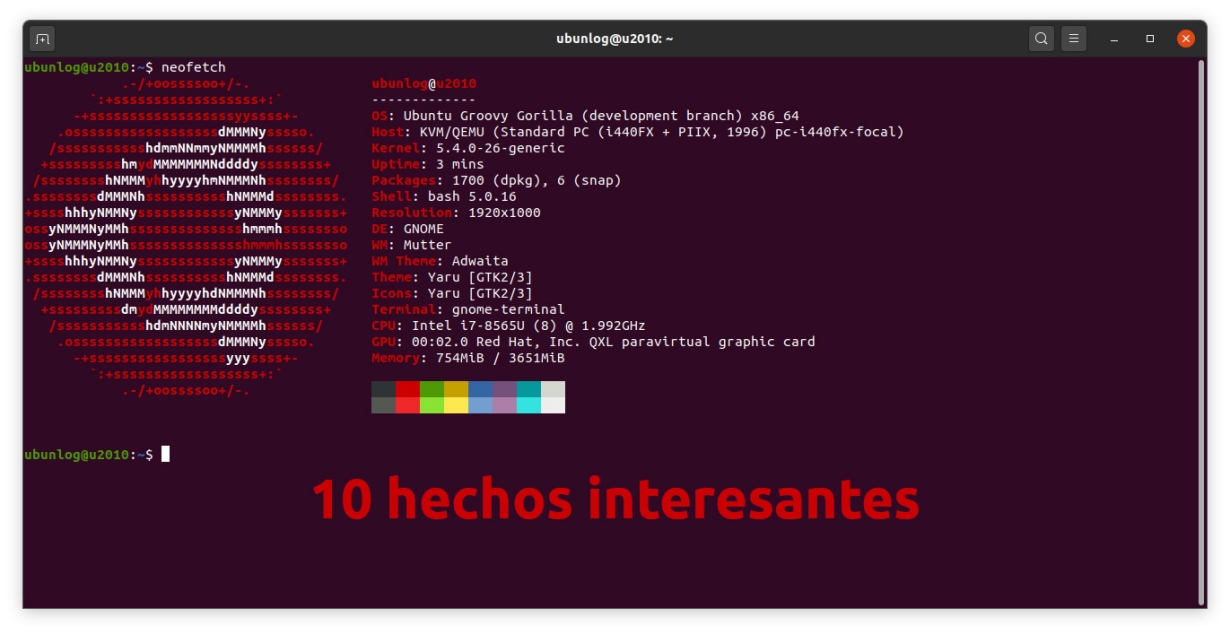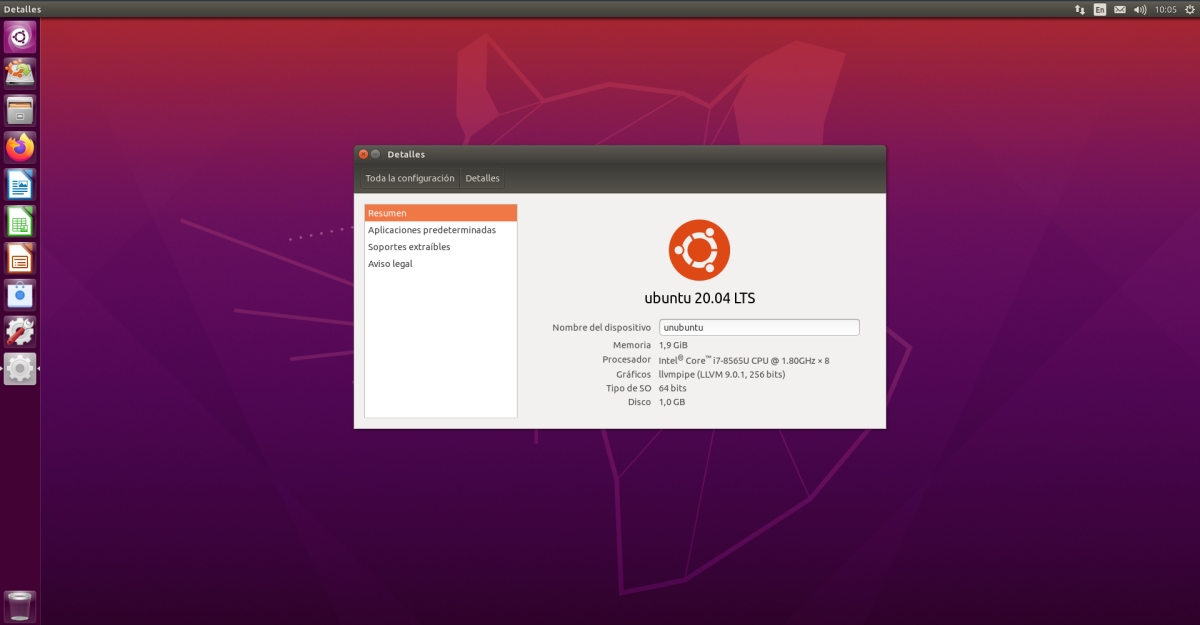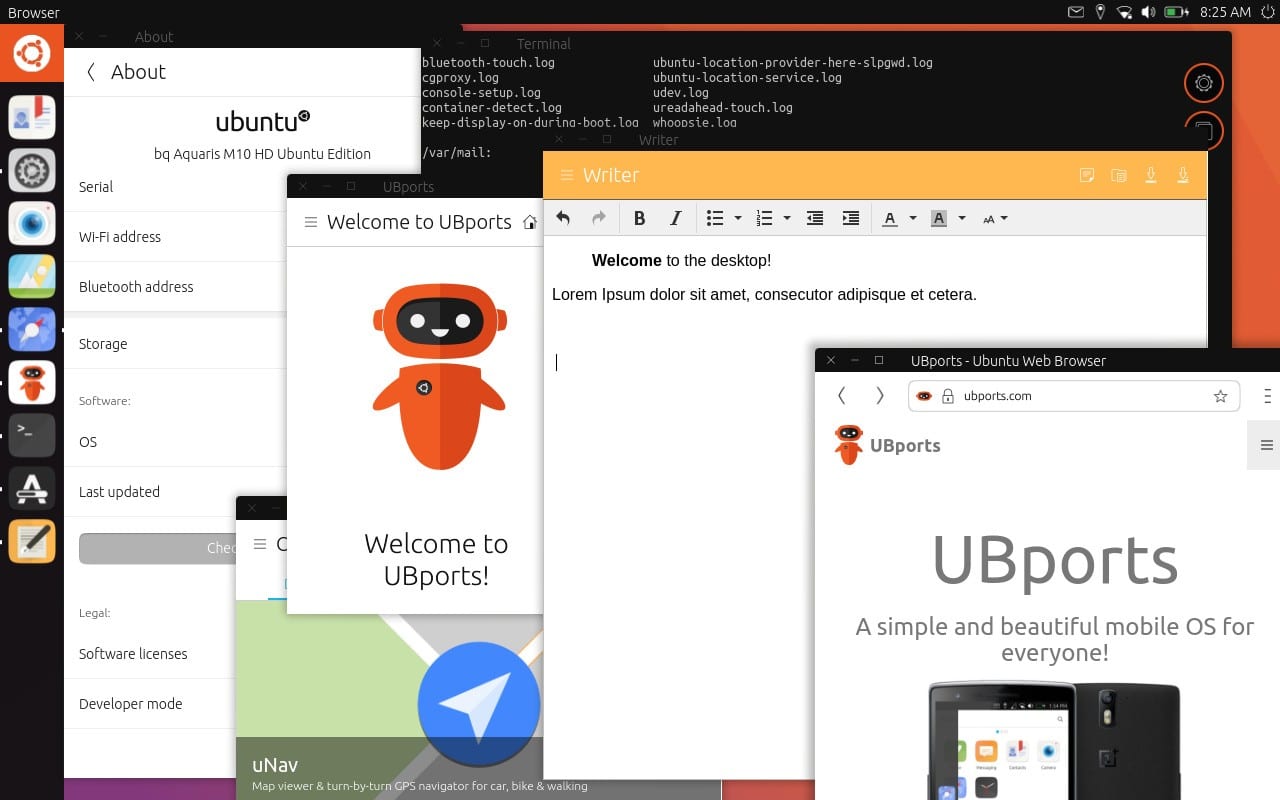Things You Didnt Know About Ubuntu
 Here at Ubunlog nosotros ordinarily talk virtually Linux, but especially about the operating organisation Ubuntu, its official flavors and others that are based on it. Most of the states know that information technology is developed by Canonical, but where does the give-and-take that gives the system its name come from? Is it a made up word like many others in a lot of software? Does information technology have a meaning in whatever linguistic communication? I don't think I will spoil you if I say yes, it is a very former African word.
Here at Ubunlog nosotros ordinarily talk virtually Linux, but especially about the operating organisation Ubuntu, its official flavors and others that are based on it. Most of the states know that information technology is developed by Canonical, but where does the give-and-take that gives the system its name come from? Is it a made up word like many others in a lot of software? Does information technology have a meaning in whatever linguistic communication? I don't think I will spoil you if I say yes, it is a very former African word.
On the other paw, have you e'er wondered what they used to create their logo? It is not exactly the same as the one shown by Neofetch, but it is fabricated upwards of three curves with a brawl in the eye each. As you will learn later, those three parts are people and in this article we are going to tell you the x most interesting facts about Ubuntu and everything that surrounds it, amidst which we have Canonical and its CEO Mark Shuttleworth.
What does Ubuntu represent and what does its logo represent?

For the vast bulk of inhabitants of the planet, Ubuntu is either the name of an operating system or naught, a word they practice not know. But for Africans, or for some of them, it is a word. Information technology is non for everyone considering it is an onetime discussion that speaks of a philosophy, whose meaning is "humanity towards others" or "a sense of benefit for all of u.s. who treat people well." That's something the popular operating organisation wants to accomplish.
Moreover, we take the logo. Equally you can meet in the previous image, they are three people who support each other and course a community belongings each other by the artillery. Looking at the epitome, and this is a personal impression, the word "unity" likewise comes to mind and do yous remember what Approved proper name gave to the graphical environment that information technology developed (and abandoned)?
Ubuntu evolution bike
Each distribution has its own evolution wheel. For instance, Debian releases its new versions every year or two, depending on when they have everything set up to work perfectly. Others like Curvation Linux use a development model known as Rolling Release in which they release all the news when they are fix, but without launching a new full operating system (they do release ISOs for new installations).
On the other hand, Ubuntu releases a new version of its operating system every six months, in the tertiary thirds of the months of April and December. The name is that of the operating organization and ii numbers separated past a period equally XY: X is the year and Y is the month, with only ii options for Y (04 and 10) and infinite for X, although there are two Xs per year. For example, Ubuntu 20.04 has recently been released, which is the April (04) 2020 (20) OS version.
Ubuntu codenames
Merely as there is a way to number operating systems, there are also rules for choosing the codename. Since its showtime release in October 2004, the codename uses an adjective and an animal name whose initials friction match, such as Focal Fossa in April 2020 or Groovy Gorilla that will be released in October 2020. It is a tradition that they have followed strictly from the starting time and the names and version numbers take been as follows (wiki):
| Describing word | Animal | Version |
|---|---|---|
| Warty | Wartog | 4.x |
| Hoary | Hedgehog | 5.04 |
| Breezy | Badger | 5.x |
| Dapper | Drake | six.06 LTS |
| Edgy | eft | 6.10 |
| feisty | fawn | 7.04 |
| Gutsy | Gibbon | 7.x |
| Hardy | Heron | eight.04 LTS |
| Intrepid | Ibex | 8.x |
| jaunty | Jackalope | ix.04 |
| karmic | Koala | 9.x |
| Lucid | Lynx | 10.04 LTS |
| Bohemian | meerkat | 10.10 |
| Natty | Narwhal | eleven.04 |
| oneric | Ocelot | 11.10 |
| Precise | Pangolin | 12.04 LTS |
| how much | Quetzal | 12.ten |
| raring | ringtail | 13.04 |
| Saucy | salamander | thirteen.10 |
| Trusty | Tahr | 14.04 LTS |
| Utopian | Unicorn | 14.10 |
| Bright | Vervet | xv.04 |
| Wily | Werewolf | 15.10 |
| Xenial | xerus | xvi.04 LTS |
| yakkety | Yak | 16.ten |
| zesty | Zapus | 17.04 |
| Artful | Aadvark | 17.10 |
| Bionic | Beaver | 18.04 LTS |
| Cosmic | Cuttlefish | xviii.10 |
| disc | Dingo | 19.04 |
| Eoan | ermine | 19.10 |
| Focal | pit | 20.04 LTS |
| Groovy | Gorilla | xx.10 |
| "HAdjective" | "HAnimal" | 21.04 |
Canonical hadn't originally decided that code names should be like this and follow an alphabetical order, but it did end up becoming the norm.
Ubuntu has seven official flavors ...
However had and will have more. At present, the normal or main flavour is accompanied past Kubuntu, Xubuntu, Lubuntu, Ubuntu MATE, Ubuntu Studio, Ubuntu Budgie and Ubuntu Kylin, with environments Plasma, Xfce, LXQt, MATE, Xfce (Plasma as of 20.10), Budgie and UKUI. Until recently, the Ubuntu GNOME version was available, but it was discontinued when Approved decided to return to GNOME after leaving Unity. In the future, they volition probably bring together the Ubuntu Cinnamon family, UbuntuDDE, Ubuntu Lumina and Ubuntu Unity, projects that are taking their first steps right now.
Unity, Approved environment

Ubuntu Unity is taking its first steps correct at present, when they accept released their first stable version. Will use the graphical environs designed by Approved before this decade, which promised a convergence between devices that never happened. Over time, he abandoned the graphical environs, just others connected with his evolution.
Unity changed the Ubuntu image a lot. Instead of having the upper and lower bars as earlier, it happened to have an upper one with information, such as the i offered by the organisation tray, and a dock on the left that, well, many of the states don't retrieve too well. The more modest computers suffered, which is why many users complain. For this reason, Ubuntu MATE was mainly built-in, which is the closest thing to the original Ubuntu.
In 2017, Canonical left Unity to revert to a much more modern version of GNOME iii.
Ubuntu Touch or Mobile

Shortly subsequently launching Unity, Approved also told us about the famous convergence that never materialized. But it wasn't because they didn't endeavor. The company began to develop a mobile and touch on version of his operating system, something he also abandoned to focus on the desktop.
UBports decided to take over the code and the mobile version of Ubuntu goes ahead, merely information technology is no longer called Unity 8 every bit expected, only lomiri. Currently, Lomiri is uniform with some terminals such as the PinePhone or the Librem five.
Canonical: the individual visitor and the motor
Many Linux distributions are developed and maintained past volunteers and the user customs, who make donations, but that is not the instance with Ubuntu. In this example there is a private visitor backside it, and its name is Canonical.
Information technology is Canonical who is in charge of ensuring that there will exist a launch every 6 months and of offer u.s. all the security patches necessary for Ubuntu to remain a reliable and secure operating organization.
Mark Shuttlework, CEO and Head of Everything

The brain of it all is Mark Shuttleworth, a Due south African businessman who founded Canonical Ltd. and is still its CEO today. Shuttleworth sponsors his ain company, helps with development, and maintains Ubuntu and other open source projects. Before this, Mark was an Apache maintainer on Debian and this was role of what made him create Ubuntu: making Debian easier to use and accomplish more people.
Shuttleworth was the starting time African in space
In addition to everything related to software, Shuttleworth likes to explore the world… and what lies beyond. For this reason, in 2002 he ended upward going into infinite, becoming the beginning African to get out planet earth and the 2nd to do information technology as a tourist paying for the trip himself. Back on the International Infinite Station, he spent eight days participating in AIDS-related experiments and genome research.
Ubuntu and its old shipping service
In its beginnings, Ubuntu did not work as it does now. It had to exist burned to a CD in order to install the operating organisation. For this reason, Canonical offered a service in which he sent us an installation CD, and all this for free. The service was called ShipIt and I personally considered ordering a CD for myself. I didn't, mayhap non to carp, and at present I regret it.
The content of the article adheres to our principles of editorial ideals. To report an mistake click here!.
reaganbrigingening95.blogspot.com
Source: https://ubunlog.com/en/10-interesting-facts-about-ubuntu-that-you-should-know/
0 Response to "Things You Didnt Know About Ubuntu"
Post a Comment